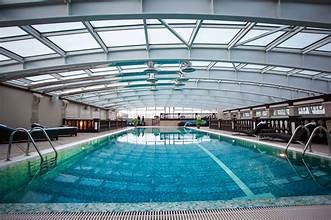I have carried this superpower with me all my life, quietly influencing everyone around me. When I was young, I did not know how to control this influential ability. So, to this world of heroism, I was a Neophyte Knight impacting few people. As I got older, like a black hole, I drew more people into my circle of influence making me feel exuberant and kind of powerful. However, On August 13, 2025, at 5 PM my superpowers showed just how expeditiously they evolved.
Each day there was a satisfying, antiseptic aroma that permeated everything shouting to the world this area is clean and sanitized. Every waking moment: I found myself under the watchful eyes of two distinct characters. Nurse Nelly ran the hospital floor like a well-oiled machine, her presence commanding respect and efficiency. The staff moved in perfect harmony, like tiny autonomous cogs tidying up after themselves ensuring everything ran seamlessly.
Tech Tammy had a heavenly scent of lavender that almost drowned out the ever-present disinfectant with the grace of a seasoned spa therapist she took vitals, helped with meals, and even assisted in bathing— making me feel like I was at a five-star resort. I half-expected her to offer a complimentary foot massage! Of course, a medical tech and a spa therapist are worlds apart, but she still left me feeling pampered.
Jasmine, the medical tech on duty, stomped in with a sour-puss expression that could sour milk. After a forced “good evening” she unleashed a tirade about her awful day, as if the universe had dropped a plop on her crop top, and the apocalypse had come early. Her venting had such a bombastic flair it seemed the story might never end.
Undeterred by her negativity, I decided to deploy my superpower: my relentlessly positive attitude and a knack for finding humor in any situation. “I totally get it,” I said with a sympathetic nod, “some days are just like that.” Then, with a playful grin, I added, “You know, when I was a kid, we were so poor that if you saw a rainbow in our neighborhood, it was in black and white.” A genuine smile flickered across Jasmine’s face, a welcome change from her earlier scowl. The stress and tension seemed to melt away from her shoulders, and for a moment, she even let out a soft chuckle. I could tell she was starting to enjoy herself, and that was all the encouragement I needed. Then, like a flower opening to the summer sun, her face blossomed into a radiant smile.
My lifelong authoritative ability, paired with my smile and cheerful personality, has not only changed minds and attitudes but also helped me make many lasting friends.” For example, in a challenging work situation, my ability to stay positive helped turn around a difficult team dynamic, leading to a more collaborative atmosphere. Over the years, these qualities have helped me forge connections that have enriched my life.
This superpower is not mine alone-it is within everyone’s reach. In a world clouded by hate, greed, and corruption, it does not take monumental strength to make a difference. A single act of kindness can ripple outward, sparking a smile and inspiring others to pass it on.
So, what is your superpower? Can you influence others with a smile and spread joy to strangers with a joyful attitude? It is a simple act, but its impact is extraordinary.























